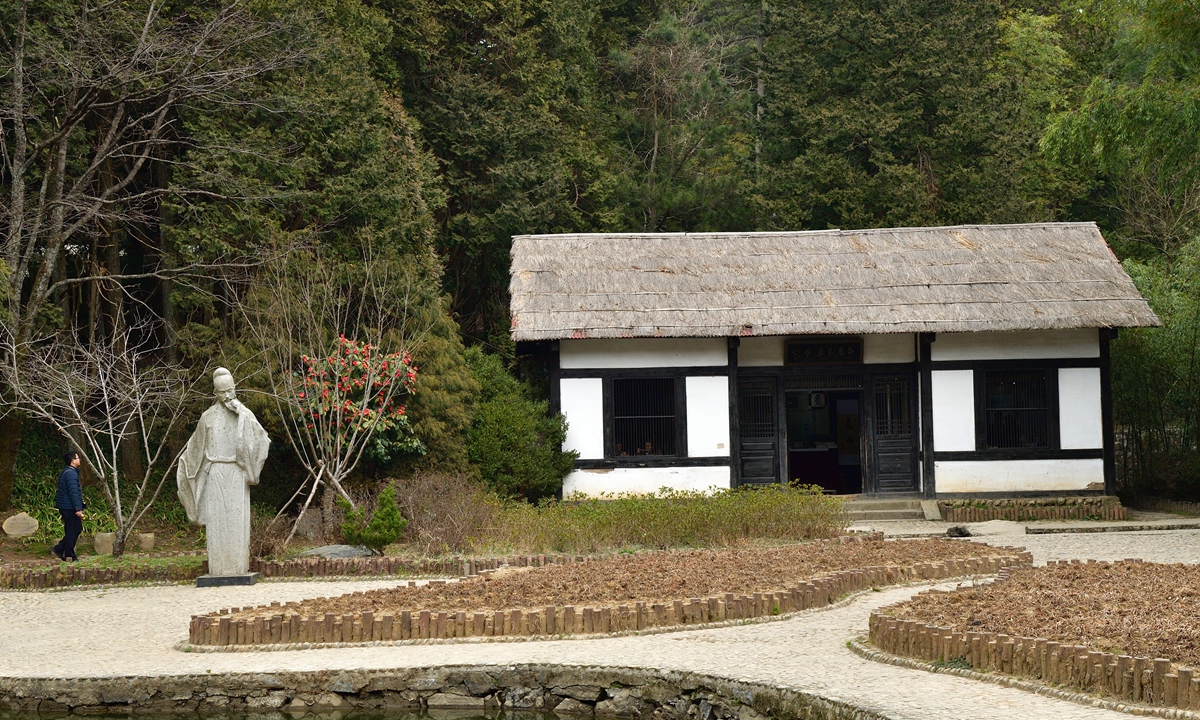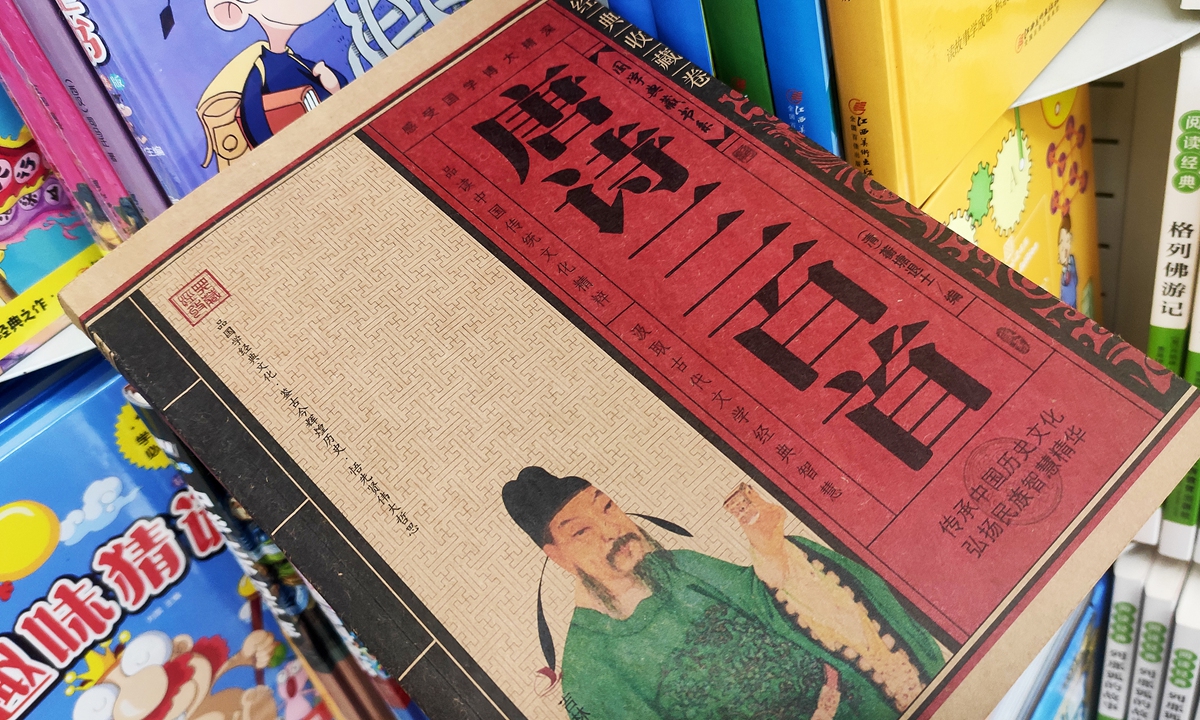
The former residence of ancient Chinese poet Liu Zongyuan in Jiangxi Province Photo: IC

The cover of the book 300 Tang Poems Photo: IC
Revisiting ancient Chinese poems not only brings aesthetic pleasure, but sharpens people's awareness of problems facing the modern-day world as well, British writer Tim Clissold, author of the critically acclaimed
Mr. China, told the Xinhua News Agency in a recent interview.
"There are a lot of concerns in the Tang [618-907] and Song [960-1279] poems that are still very much concerns in the world now," said Clissold.
His latest book
Cloud Chamber, a collection of English translations of Chinese poems, was published earlier in 2022.
The Tang and Song dynasties were a golden age for Chinese literature, art, science and philosophy.
"The topics that they were concerned about are still very important today," Clissold said.
He cited Liu Zongyuan (773-819), who wrote a poem about excessive logging, Bai Juyi (772-846), whose works on tax evasion bring to mind social inequalities in the British society, and Du Fu (712-770), whose works on exile and displacement make readers reflect on the plight of the large number of refugees in Europe and elsewhere.
Reading ancient Chinese poems and getting acquainted with Chinese culture not only make people more empathetic toward those who suffer, but also sheds light on proper ways of settling conflicts, which is vital as the specter of war hangs over Europe, he said.
"The greatest form of excellence is solving a problem without the need for having conflict," he said, quoting
The Art of War by Sun Tzu.
"The Chinese have a much greater tendency to try to solve problems in an amicable way," he said.
"Zero-sum game is kind of the Western view on it. And it has been proven over the last few decades that Western society is much quicker to use force - and it's a failure."
Clissold noted that the Chinese people know more about Westerners than Westerners know about the Chinese, calling it "a dangerous knowledge imbalance."
For one thing, not understanding the Chinese well gives the Chinese a competitive advantage, he said.
"And for another, it's bad for China as well, because if Westerners don't really understand it, and try to look at China through a purely Western lens, you can misjudge it," he said.
"So that knowledge imbalance is quite dangerous for both sides."
Western media's unbalanced reporting of China is partly to blame for such an imbalance, he noted.
"The press in the West plays a role which emphasizes a certain aspect of Chinese society in Chinese life, and diminishes the others. I think the press does an extremely bad job in Western society about trying to explain," said Clissold.
He said there are things in the Chinese society that the Westerners will always find difficult, as a result of their different historical experiences.
"But I think that the basic needs and desires of Chinese people are very, very similar to Western people: You want a peaceful environment where you can develop your own life," he said.
"I mean everybody should be able to recognize that."
He praised what China has achieved over the past three to four decades as a "pretty amazing achievement."
"I don't think that is properly recognized in the Western press."





